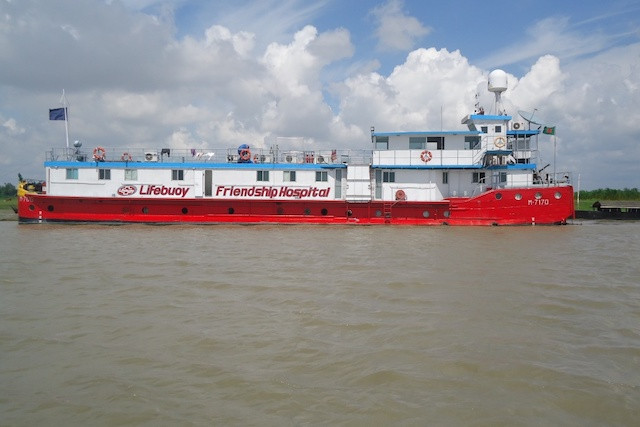Initiated in 2014, Satmed has played a critical role in responding to crises--most recently with the covid-19 pandemic--and its applications ranging from e-imaging and teleradiology, to consultancy, e-learning and more have allowed its partners in underserved areas to better serve locals where governments may not be keeping up.
Runa Khan, founder and executive director of the Friendship NGO Bangladesh has first-hand experience in the challenges her country faces when it comes to medical care. Even if the country’s parliament increased allocations to the health sector in its 2021 budget, it’s still less than 1% of its total GDP--a “low expenditure”, which the World Health Organization says “is not a new phenomenon.”
Friendship NGO’s priority in Bangladesh is to reach communities otherwise inaccessible, i.e., in remote, shifting river islands there, and undoubtedly its work intensified during the health pandemic.
“Connectivity in the context of Bangladesh is--and always has been--one of the main reasons why service delivery has been so poor in this country,” Khan said during Wednesday’s Satmed 2.0 launch.
Over the years, Friendship NGO has increased the number of its hospital ships in the area and, with the help of the platform, during the covid crisis Khan said they’d managed to serve over 73,000 patients as well as offering more than 100 training courses. But moving forward, she hopes to intensify discussions with partners.
Cross-national, long-term aims
Satmed, funded by the Luxembourg government with connectivity provided by the SES satellite fleet, was first piloted with limited partners in its 2014-2017 phase and later extended through 2020. It has served 10 locations so far across Asia and Africa.
For the 2021-2024 timeframe, the platform will be scaled up through new functionalities, deployments and partnerships. Even if the platform has been internationally recognised--most recently by SSPI, the Paris Peace Forum and UNAids, as well as meeting Sustainable Development Goal #3 (good health and well-being)--the most important “is certainly testimonials coming from the field,” according to SES Techcom managing director Alan Kursevic.
He spoke of the “unrivalled availability and cloud applications” available through the platform, adding that the collaborative effort from partners has been critical to its success and will be key for scaling up.
But what will this scale-up look like? Kursevic said this will involve engaging more NGOs and partners and also “looking at different types of partners coming from more supranational organisations--potentially WHO, other organisations to provide regional or cross-country support, both from a funding [and] organisational perspective in the field--to provide support services to be closely implemented potentially into the national health infrastructure systems.”
Minister of development cooperation and humanitarian affairs Franz Fayot (LSAP) said in a next stage, a workshop would be organised in order to discuss lessons learned, as he also sees much potential for the future.
“Today’s extension is extremely timely. Not only are reliable connectivity and cloud telemedicine tools needed by the dedicated covid-19 task forces, they remain key for the continuity of other important health services like consultations with doctors in other locations, surgeries, X-ray data processing and much more,” minister Fayot said.
